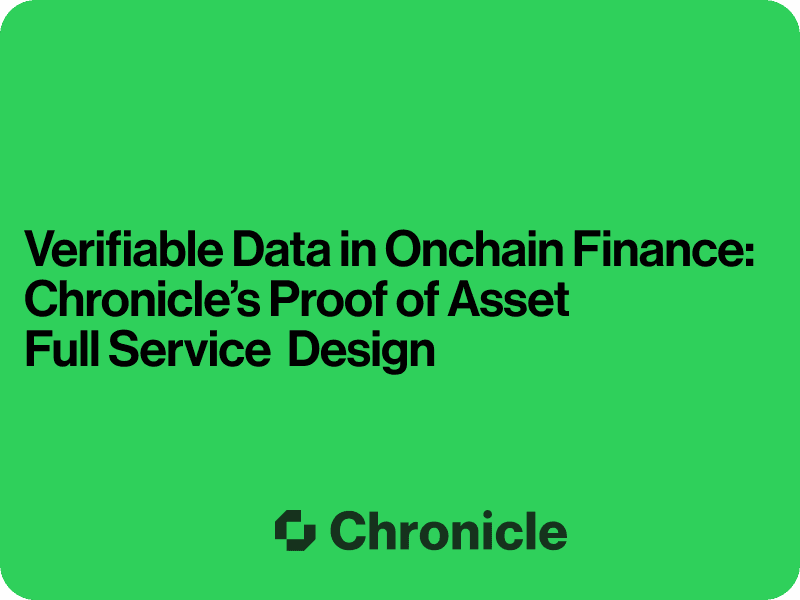Oracles power blockchain applications by connecting onchain smart contracts with real-world data, unlocking new capabilities and use cases. Before integrating an oracle into your protocol, it’s important to assess key technical and infrastructure factors that can impact your implementation. Let’s walk through the essential elements every builder should evaluate when requesting an oracle.
1. Chain Compatibility: Speaking the Same Language
Before requesting an oracle, start by confirming whether the provider can support your target chain. Even among EVM-compatible chains, subtle differences can introduce unexpected complexities.
EVM Compatibility & Precompiles
- Is the chain fully EVM-compatible, or does it introduce custom precompiles?
- Are there modifications to existing precompiles (like ecrecover)? These differences can impact oracle functionality.
- Does the chain support EIP-1559 transactions? While optional, this impacts gas estimation and execution.
Network Details & Tooling
- What are the mainnet and testnet chain IDs? Are they unique and listed in Ethereum Lists?
- Are reliable RPC endpoints available for both testnet and mainnet?
- Does the chain support modern tooling like Foundry (forge, cast), Hardhat, or Remix? A lack of developer tooling can slow down integration and debugging.
Smart Contract Infrastructure
- Is Gnosis Safe deployed on the chain? While not mandatory, this can make multisig treasury management easier.
- Is Multicall3 available? Many applications depend on it for batch calls.
- What is the native gas token? And can it be transferred easily to developers for testing and staging?
Why It Matters
Ensuring oracle compatibility isn’t just about EVM support—it requires a deep understanding of chain-specific nuances, tooling, and infrastructure. Verifying these details upfront can prevent costly integration challenges down the line.
2. Infrastructure & Node Access: The Foundation of Reliable Data
Oracles rely on robust infrastructure to fetch and deliver accurate data onchain. Ensuring the right infrastructure is in place is crucial to prevent downtime or stale data.
RPC Access & Availability
- Does the chain have an RPC service provider?
- If not, what are the requirements for self-hosting an RPC node?
- Minimum hardware requirements
- Sync time for full and archive nodes
- Rate limits, caching, and API restrictions
Relayer & Gas Management
- Are native tokens available for the relayer to cover transaction fees?
- Does the chain have significant gas price fluctuations or priority fees that could impact oracle update execution?
Why It Matters
Reliable data delivery starts with a strong infrastructure foundation. By ensuring stable RPC access, managing relayer costs, and preparing for any potential node challenges, you set your oracle up for consistent, accurate performance.
3. Oracle-Specific Considerations: Handling Edge Cases
While most builders focus on basic integration, understanding how the chain’s finality and data availability affect oracles can prevent unexpected behaviour.
Block Finality & Reorg Risks
- How long does it take for a block to be finalized?
- Is the chain prone to frequent reorganizations (reorgs) that could affect oracle updates?
Data Source Redundancy
- Does the chain have multiple independent data sources for price feeds?
Why It Matters
Understanding these aspects ensures that oracle updates are reliable, preventing issues where smart contracts rely on outdated or incorrect data due to reorgs or unreliable sources.
Final Thoughts: A Smooth Oracle Integration Starts With Preparation
Oracle integration involves more than simply linking to a data source—it requires ensuring compatibility, building a reliable infrastructure, and preparing for resilience. By addressing these considerations proactively, developers can avoid future challenges and enable their dApps to receive accurate, real-time data.
If you're planning to request an oracle, take a moment to review these considerations. If you have any questions along the way, open a ticket on
Discord—we're here to help!






